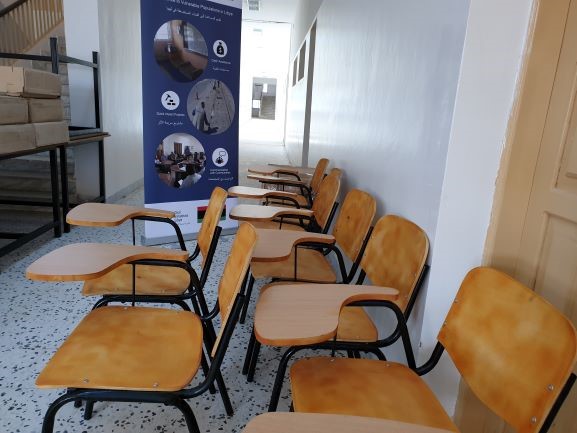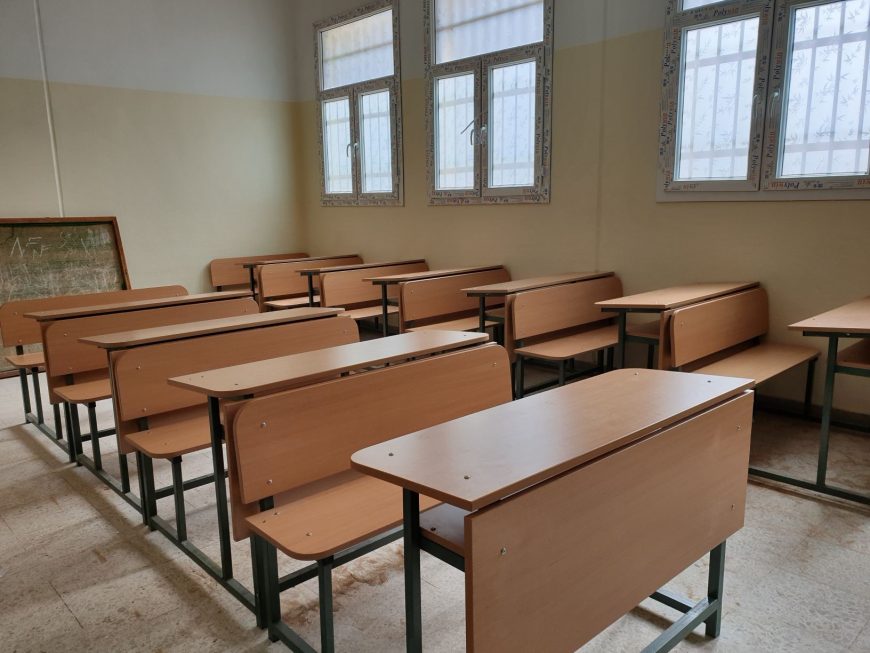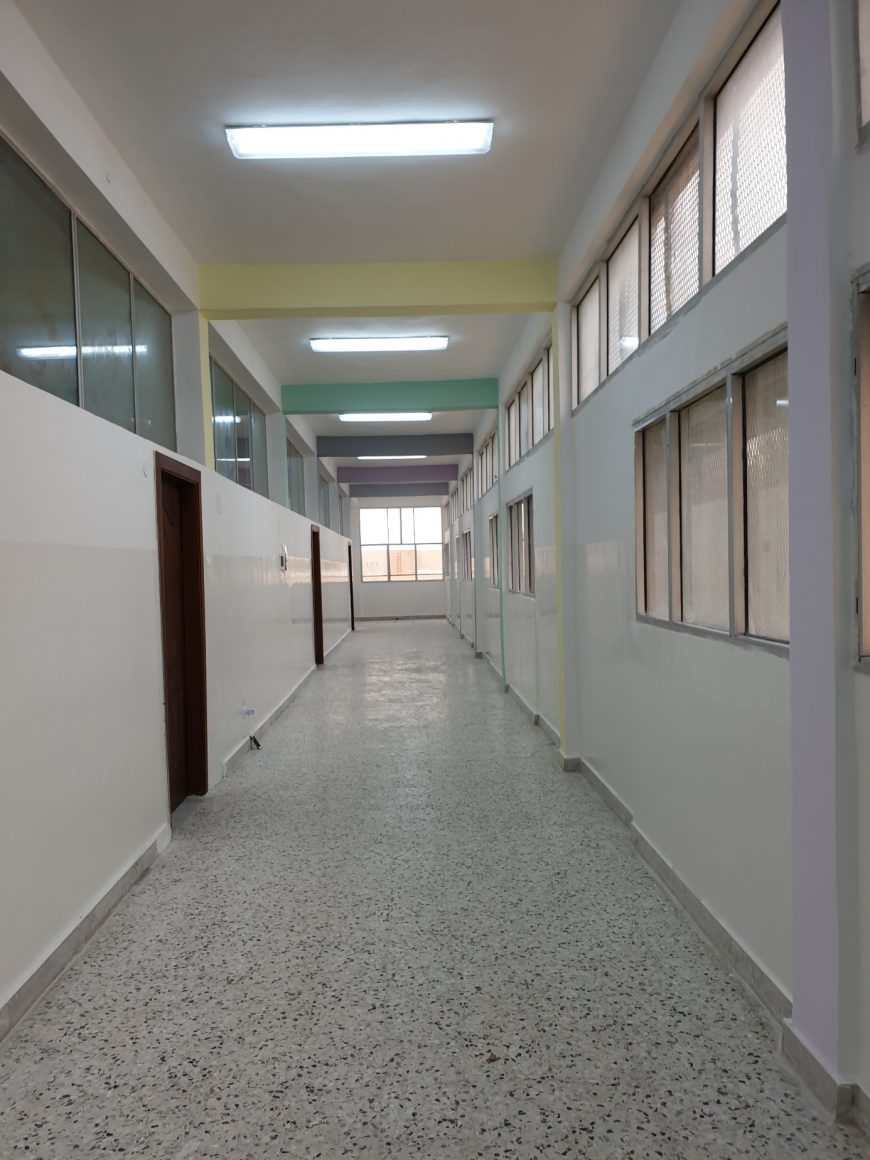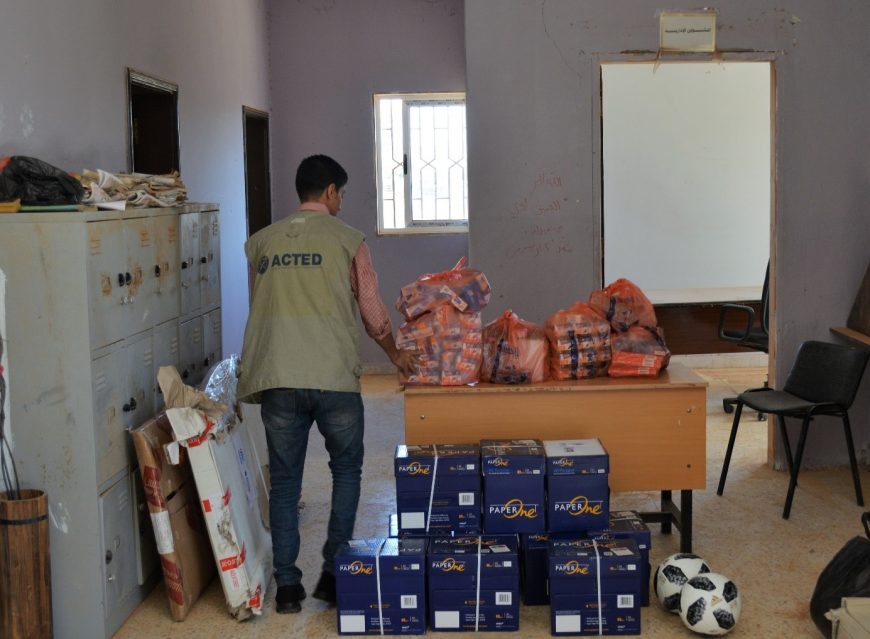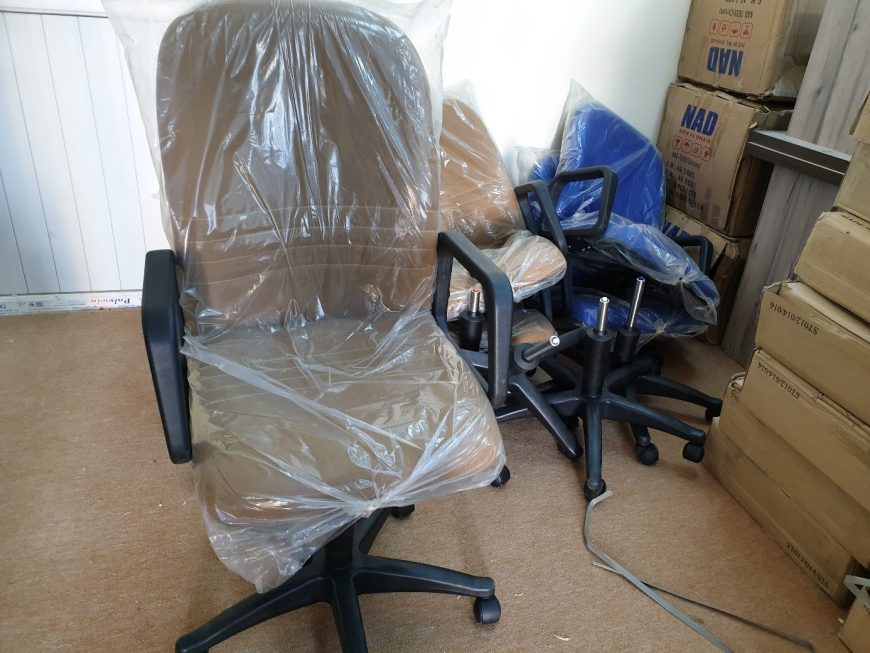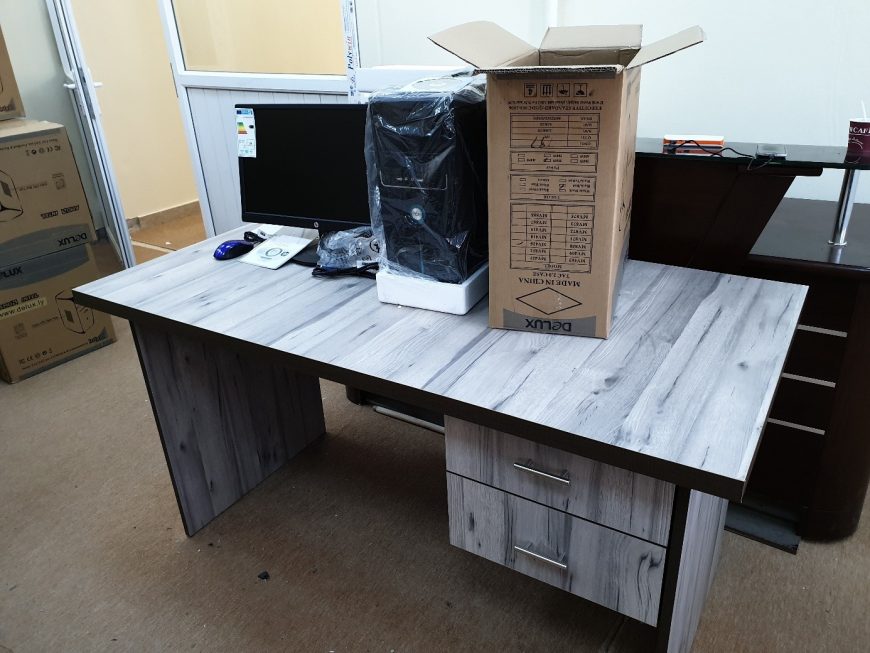Schools across Libya have been heavily affected by conflict, impacting student’s access to education and leaving communities vulnerable. To promote the right to education and improve the health and safety of educational environments, ACTED implemented 15 Quick Impact Projects (QIPs) in 2018 across the South, West and East of Libya. Funding for ACTED’s education QIPs comes from the United Nations High Commissioner for Refugees (UNHCR).
Following a community-based needs assessments in vulnerable target areas, ACTED identified schools as the most notable institutions to have been severely damaged due to conflict. Schools that have not already been shut down are often in severe disrepair, impacting the health, safety and access to education for students. Moreover, due to the economic situation in vulnerable municipalities, funds for school rehabilitation are simply not available. To fill this gap, ACTED has distributed school supplies, IT equipment, office supplies and furniture such as desk and chairs. In addition, ACTED has completed renovation projects like painting walls, installing lights, and fixing the windows and doors of classrooms.
In total, six schools across the country received supplies, equipment and material. At the Al Khwibia school in Al Gwarsha neighbourhood in Benghazi, the playground was cleaned, painted and provided with basketballs and volleyballs for the children. In Abu Salim neighbourhood in Tripoli, the Al Istiklal school received school supplies, as did the Al sad al Ali Secondary School in Garyounis, the Thawret el Takbeer school in Ganfouda, the Abu Gharrah School in Aloweynia and El Deyya school in Gwarsha.
Improving community stabilization through access to education
Combined, these QIPs support around 3,300 students in addition to their larger community base, therefore impacting stability in the target area. When children, teachers and administrative staff are provided with a safer, more hygienic working and educational environments, community stabilization follows. In post-conflict areas, families are encouraged to return, knowing their children can access schools without travelling to distant neighbourhoods.
